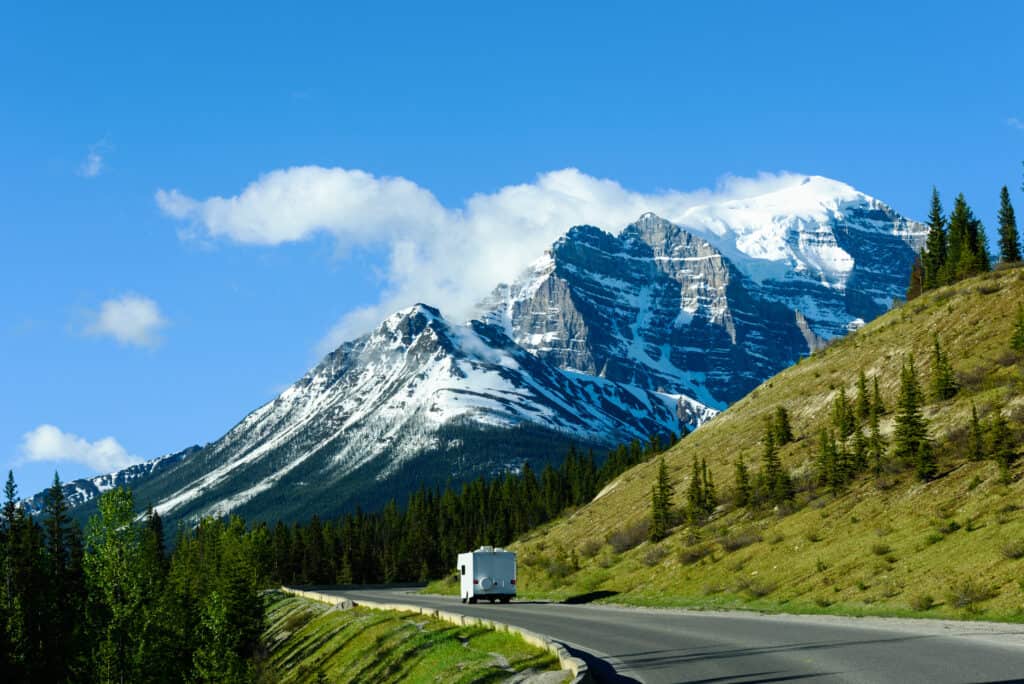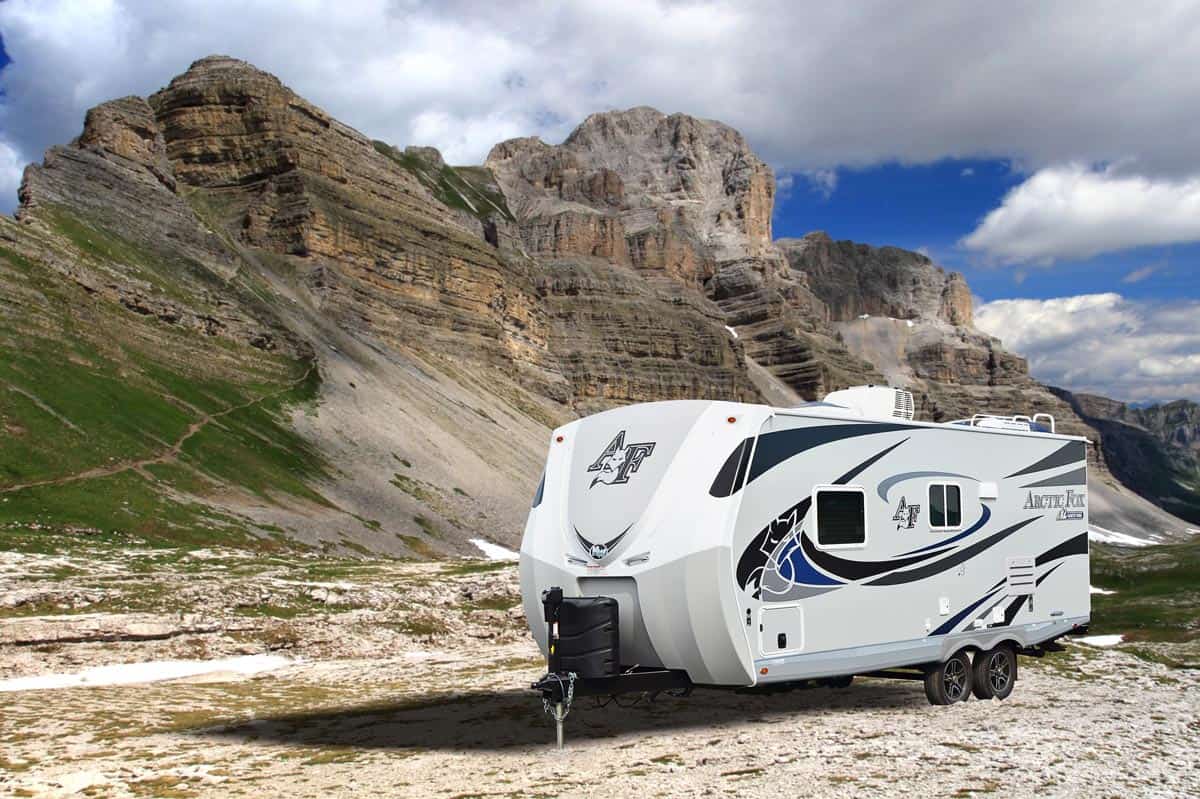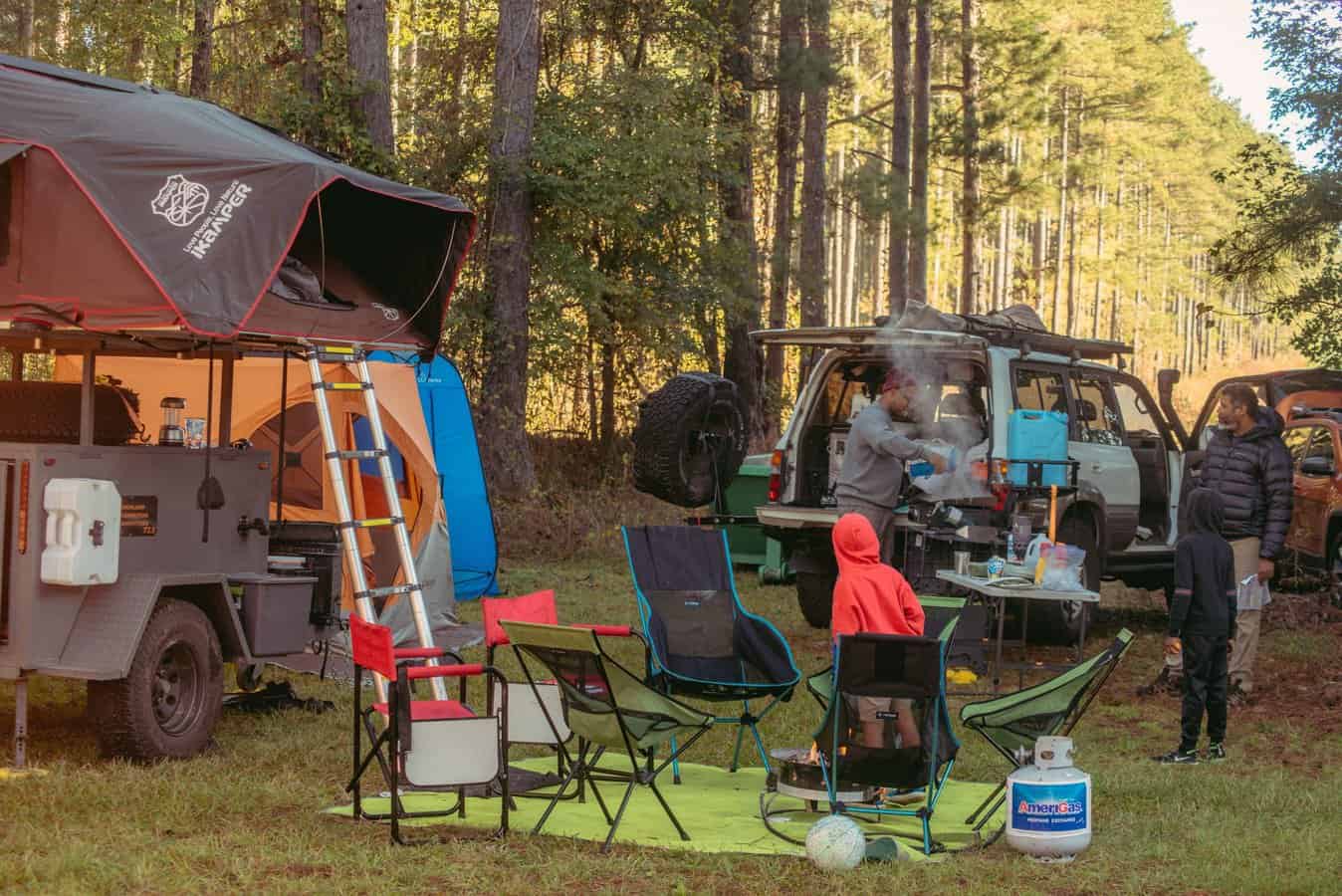
15 Tips For RV Camping In Canada
Are you thinking about taking a trip to Canada in your RV? You aren’t alone. The diverse and epic RV camping opportunities in Canada attract visitors from all over the world. One of the great things about RV camping in Canada is that the exchange rate makes it very affordable, even when the prices of fuel are reaching historic heights.
There are tons of uniquely wonderful fully serviced campgrounds across Canada. There are plenty of free (or very cheap) places to boondock as well. We’ve put together 15 of the best tips for traveling and RV camping in Canada.
1. Plan your travels with RV LIFE Pro.
Use RV LIFE Trip Wizard and the RV LIFE App, which are bundled together with RV LIFE Pro, to plan an amazing vacation that will bring back happy memories for years to come. With these essential tools, you can plan an RV-safe route, find campgrounds and other points of interest along your route, as well as track expenses and more.
2. Book ahead.
If you are planning to go RV camping in Canada, make reservations at national parks and provincial campgrounds well ahead of time. Some provinces allow you to book 5 months in advance.
3. Bring some Canadian cash with you.
If you are close to the border, you’ll find places that will accept US dollars. As you get further away from the border, it could be harder to find places that accept US dollars at a fair exchange rate. The exchange rate at the time of this writing is .80 USD to $1 CAD.
4. Make crossing the border easy by being prepared.
Currently, to cross the border into Canada, you’ll need to have proof of citizenship, proof of vaccines for each person in your RV, and health certificates for pets. You’ll have to declare any firearm you bring into Canada, and certain firearms are expressly prohibited. Click here for documentation requirements for entry to Canada from the US.
5. Overhead clearances are in meters.
Canada officially uses the metric system to measure everything. Google will convert meters to feet. So, know how high your rig is in meters and you can avoid scraping off the top of your RV on a low overhead clearance.
Remember: 3.28 feet = 1 meter. That being said, many campgrounds (and BC ferries) measure RV length in feet. Using RV LIFE Trip Wizard will help ensure that you choose RV-friendly routes while RV camping in Canada.
6. Fuel is in liters.
When you see the price of diesel and gas advertised in Canada, it will be per liter. When you buy propane, it will be priced in pounds. You can easily get local fuel prices on Gasbuddy.com. If you need to make a conversion for liters to gallons, remember that 1 US gallon = 3.785 liters.
7. Paying for fuel before pumping is the norm in many places in Canada.
It’s also good to know ahead of time that the fuel pump won’t work until after you pay for your gas.
8. Canada is officially bilingual.
English is the primary language throughout most of Canada. French is the primary language only in Quebec.
9. Saskatchewan is way underrated.
If you only drive through Saskatchewan on either of the two major highways, you’ll think that it is very flat and mindlessly boring. Get a little off the beaten path and you will find cactus-studded deserts, picturesque badlands, lush valleys, diverse wildlife, historical landmarks, museums, and amazing campgrounds.
Touted as the land of the living skies, Saskatchewan has many great places for RVers to explore. Most Saskatchewan towns have a well-appointed, low-cost community campground that shows off the spectacular assets of the region.
10. Vancouver Island is worth a visit.
Truth be told, Vancouver Island is the jewel of British Columbia (and possibly Canada). Vancouver Island is a 286-mile long island off the coast of British Columbia. On Vancouver Island, the historically marvelous capital city of Victoria is surrounded by outstanding RV camping spots, so you can camp while you enjoy sightseeing in the city. From Victoria, you can head north to endless beaches, forests, and wildlife.
Tofino sits on the western edge of the island, at the north end of miles of sandy beaches. If you keep going north, you’ll find beautiful oceanfront campgrounds and will eventually get to Cape Scott Provincial Park. This park is home to the largest wolf population on the island as well as Roosevelt elk and marine species such as whales and massive Stellar sea lions. Vancouver Island is well worth the ferry detour.
11 . Alberta is home not only to the cheapest fuel prices in Canada, but also to the Tyrell Dinosaur Museum in Drumheller and Dinosaur Provincial Park.
These dino-centric places each have fully serviced campgrounds and plenty of opportunities to explore, with hiking and biking trails through fascinating and varied badland canyons.
12. Canada has many campgrounds to choose from.
Across Canada, you can RV camp at national parks, provincial parks, community recreation sites (Saskatchewan), private campgrounds, and public land campsites. Search RV LIFE Campgrounds to learn more about each location and what they have to offer.
13. You can boondock for free at public land campgrounds.
In Western Canada, the Ministry of Forests and Natural Resources has set up primitive campgrounds in forested areas. While public land camping in Alberta requires an annual permit (about $30), public land camping in BC is usually free, but more popular sites may require a small campsite fee.
It’s wise to research the area road conditions and the size of these remote campsites while you are in the planning phase of your trip. You can check out reviews on RV LIFE Campgrounds before you go too. Here are guides for camping on public lands in Alberta and BC:
14. Marijuana is legal throughout Canada but don’t even try to cross the border with it.
It’s illegal to transport cannabis across the Canadian border. It doesn’t matter whether you’re entering or leaving Canada. Bottom line: Don’t cross the border with cannabis.
15. Speed limits are in kilometers per hour.
Avoid getting a speeding ticket by remembering that speed limit signs are always in kilometers per hour, not miles per hour. Here is a handy chart to break down common speed limits across Canada:
- 30 KMH = 19 mph
- 50 KMH= 31 mph
- 80 KMH = 50 mph
- 100 KMH = 62 mph
- 120 KMH = 75 mph
For all of your camping and trip planning needs, look no further than RV LIFE Campgrounds and RV LIFE Trip Wizard. RV LIFE Campgrounds is a trusted source of campground and RV park reviews offered by camping and RV enthusiasts just like you. With its accompanying RV LIFE App, RV LIFE Trip Wizard gets you to your camping destinations utilizing RV-friendly routes specific to your RV and travel preferences.
Been to a campground lately? Don’t forget to leave a review! Reviews help other RVers like yourself, and they help the campground. Leave a campground review today!
Related articles:





And # 16 , Be sure to visit Canada’s only desert . The Sonora Desert , which starts way down in southern California and extends to it’s northern tip at Summerland British Columbia in the Okanagan Valley . This area has been nick named ,Napa Valley North , with many vineyards and wineries . And Okanagan Lake the Jewel of the Valley .
Be prepared for the cost going to Vancouver Island from Vancouver. A round trip with truck and 30ft TT $700. Book ahead when going both ways this way you are guaranteed a spot. Same with campsites. Tofino campsites are small and cram you in. Watch your speed limit in BC., they will seize your vehicle. Only carry one extra propane tank 25lbs or not at all. On the ferries if traveling with pets they are left in the RV and everyone must leave the car deck to be topside. There are allot of nice spots to visit there like the Butchard Gardens, Chamois for their murals. Alert Bay for native culture, whale watching there is great. Telegraph Cove is a nice spot to walk around. Great fishing there also
Yes, please bring Canadian dollars. Even if you can get a good exchange rate in some of our shops, it is arrogant and rude to visit another country and expect to do business in your own currency. Also, be aware you cannot bring your guns into Canada, either.
Many firearms are allowed into canada when declared properly. Research this before assuming for specific models and almost.
Ammo not almost.
Your U.S. readers should also become very familiar with the firearms laws of Canada. before they set out with ANY items that could be considered a weapon. Check before you pack it in the vehicle:(s). These are set federally, and are strictly enforced at points of entry. Many U.S. citizens have learned the hard (and expensive) way about attempting to avoid following those laws. The Canadian government has up to date information on its website – a google search of the subject will provide readers with a lot of information – just be sure to verify it on our government’s official web sites.
One other note – yes, our Canadian fuel prices (in litres – there are 3.79 litres per U.S. gallon), due to the insane amount of taxes embedded in those fuel rates. However, we Canadians also note these taxes help pay for our universal health care system, so we “pay as you go”, not all of a sudden when we end up in hospital. I am not saying it’s a perfect system, but it is the one we have. Therefore, our U.S. friends may moan and groan about fuel costs, but most Canadians will just smile and possibly nod the head. Welcome to Canada !